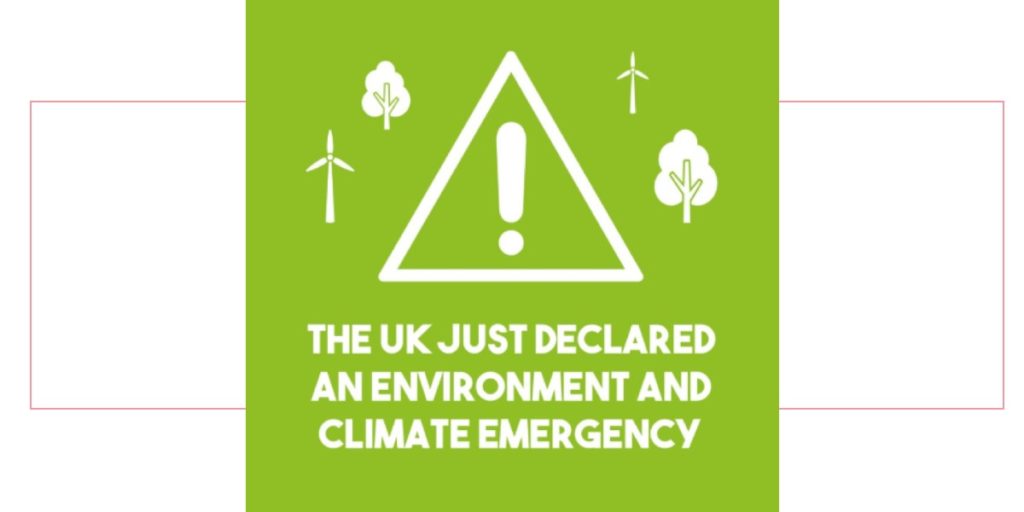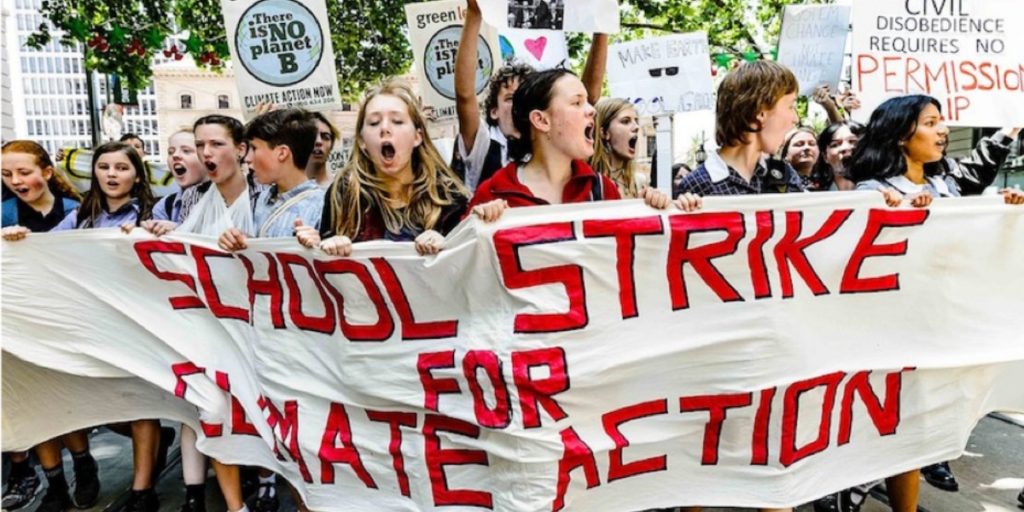May 2019 has kicked off with UK Parliament declaring an Environment and Climate Emergency. This has made history as they are the first government in the world to do so.
The commons announcement has come after decades of bubbling public concern, a week of peaceful protests by Extinction Rebellion and year of school striker activism including Greta Thunberg being invited to make a speech to UK parliament last month.
Extinction rebellions demands were clear and simple: For the government to “tell the truth” about the scale of the environmental crisis the world faces, for the UK to enact legally binding policies to reduce carbon emissions to net zero by 2025 & for the government to form a Citizens’ Assembly to oversee the changes needed to achieve this.

Although the UK’s commitments to the 2025 deadline are not yet set, with Brexit on the horizon we should start seeing our own ambitious commitments and climate policies.
Some of the reactions to Extinction Rebellion’s London protests were of course negative. One popular newspaper remarked: ‘’So what happens now to all those ragged Marxists with double-barrelled names and Instagram accounts boasting about their foreign holidays, who have taken such a delight in messing the rest of us around?’’
This suggests that climate change is not a working-class issue. Climate change is not a class war and taking this stance is completely blind sighted. Acting on climate change means action on climate justice, acknowledging the need for equitable stewardship of the world’s resources and supporting those displaced by climate change now and in the future. The human effects of climate change are often less commonly acknowledged but for centuries the poorest within communities are those who feel the effects more and have been taken advantage of on a global scale. Mary Robinson’s Climate Justice book highlights these everyday injustices perfectly.
School children campaigning for a better future

Perhaps the most eye opening and emotive campaigners are the school children. Their lives are the most uncertain as we edge towards the tipping point of warming reaching +1.5 degrees Celsius above pre-industrial temperatures this century.
2,233 cities took park in the School Strikes for Climate Action protest in March, claimed to have included 1.4 million young people around the world. Youth campaigners aren’t a new phenomenon, it’s important to mention there have been hundreds of groups around the world fighting to make a change. For example, in 2014 the youth group Pacific Climate Warriors blockaded the world’s busiest coal ship route in Australia with canoes. A very dangerous and brave feat which didn’t result in policy change at the time.
It’s about time…
It has taken communal efforts with the support of scientific research to force policy makers and politicians to see through their greed, listen to the science and rise to the climate change challenge. Now we need a whole new way of thinking for a system with an addiction to fossil fuels, profit and growth which is digging us deeper every day. Greta Thunberg summed this up powerfully in her speech at UK parliament 2019:
‘‘This ongoing irresponsible behaviour will no doubt be remembered in history as one of the greatest failures of humankind.
People always tell me and the other millions of school strikers that we should be proud of ourselves for what we have accomplished. But the only thing that we need to look at is the emission curve. And I’m sorry, but it’s still rising.’’
There is the possibility of rapid transition, and history shows us that governments and people can act swiftly at scale when they choose. For example, in World War Two Britain Mobilized to conserve and re-purpose energy on a mass scale, and the global financial crisis in 2007- 2008 saw vast resources mobilised almost overnight to rescue the world’s major banks. ‘‘This isn’t about looking on the bright side, it’s about seeing where opportunities lie and seizing them with both hands. To fail would still be a choice.’’
References and useful articles:
- New International, April 2019. https://newint.org/issues/2019/04/23/how-avoid-climate-breakdown
- Pacific Climate Warriors, 2014. https://www.bbc.co.uk/news/world-australia-29658363
- Paris agreement, 2015. https://unfccc.int/process-and-meetings/the-paris-agreement/what-is-the-paris-agreement
- Greta Thunberg speech March 2019: https://m.youtube.com/watch?v=rYNM4rsnNFM

Author: Evie Hooper
Evie is going through an ethical fashion and living evolution and has decided to share her diary and experience with us as she evolves and learns more.
